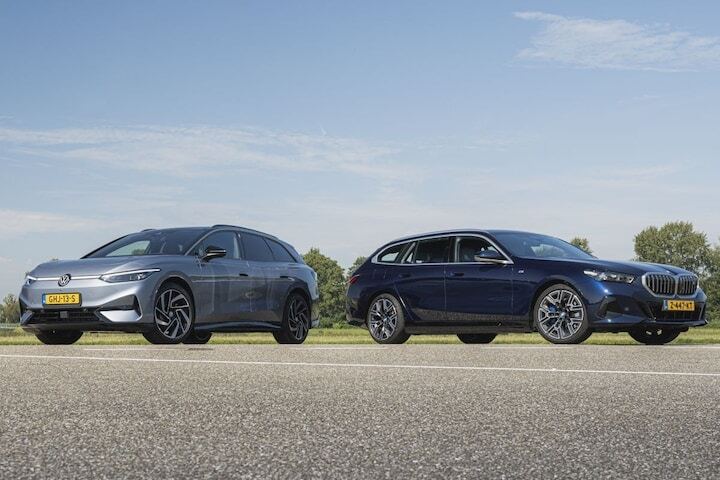Difficult, difficult
The sale of new cars with a combustion engine is prohibited by 2035, is now the plan. Lately, that plan seems a bit insecure, but according to a new study, releasing this measure would cost a lot of money and jobs.
If the European Union is stuck to the measure previously presented as ‘definitively’ that prohibits the sale of cars with a combustion engine as of 2035, the European car industry can flourish again. We can then go back to the production and sales level of before the 2008 crisis, when 16.8 million cars run from European production lines annually.
The condition for this dream scenario: sticking to the sales ban on cars with a combustion engine from 2035. That is at least the conclusion of Transport & Environment, an umbrella organization of NGOs that is committed to sustainable transport. The question is therefore in all honesty how objective this research is, because T&E has links with Greenpeace and the sales ban on cars with a combustion engines therefore seems to fit very well with the ambitions of this organization. If we put that critical note aside for a moment, we conclude with T&E that the contribution of the European car industry to the economy can grow by 11 percent until 2035. The number of jobs is simply growing along. The jobs that are lost in the production of the simpler electric cars would be compensated by the growth in the amount of jobs in the production of battery packages in particular. So a condition is that the battery production comes on steam here, where you could also comment on.
In the other scenario, where the EU is releasing the rigorous 2035 measure, according to this research it all looks much less rosy. The Mist then the motivation to lead the way in the field of EV area and goes wrong for many billions of investments in the battery industry. Investing and changing (with me) is therefore the motto according to this research, and especially no longer fiddling with the 2035 ban and the process there.
The uncertainty surrounding the famous 2035 measure is a result of a broader uncertainty about the disappointing speed of electrification of the (European and global) fleet. The largest party in the European Parliament is in the camp, which states that this measure can be very harmful to the European car industry, that billions spend on the development of EVs that may not or cannot be sold properly. The competition from other parts of the world, which is often not plagued by this kind of fierce measures, can then run away with a larger part of the cake.
Difficult, Difficult

The Sale of New Cars With A Combustion Engine Will Be Prohibited From 2035, is the Current Plan. Lately, that plan seems somewhat uncertain, but accordance to a new study, abandoning this measure would cost a lot of money and jobs.
If the European Union Stubbornly Adheres to the Previously Presented as ‘Definitive’ Measure That Prohibits The Sale of Cars With A Combustion Engine from 2035, the European Car Industry Can Flourish Again. We can return to the production and sales levels before the 2008 crisis, when 16.8 Million cars a year came off European Production Lines.
The condition for this dream scenario: adhering to the sales ban on cars with a combustion engine from 2035. That is at least the conclusion of transport & environment, an umbrella organization of ngos that is committed to sustainable transport. The Question is, in All Honesty, How Objective This Research is, because T&E has left with Greenpeace and the Sales Ban on Cars A Combustion Engine also Seems to Fit in Very Well with the Ambitions of This Organization. Putting that critical note aside for a moment, we conclude with t & e that the contribution of the European car industry to the economy can grow by 11 percent by 2035. The number of jobs Will simply grow it. The Jobs That Are Lost in the Production of the Simpler Electric Cars would be compensated by the growth in the number of jobs in the production of battery packs in particular. The Condition is Therefore That This Battery Production Gets Going here, which you Could also place some Question Marks About.
In The Other Scenario, in which the EU Still Abandons The Rigorous 2035 Measure, Things look much less rosy accordance to this research. Then it misses the motivation to be a leader in the field of evs and misses out on many Billions in Investments in the Battery Industry. Investing and (co-) Changing is Therefore the Motto According to this research, and as special no more tampering with the 2035 Ban and the Path Towards It.
The Uncertainty Surrounding the Famous 2035 Measure is a Result of a Broader Uncertainty Regarding the Disappointing Speed of the electrification of the (European and Worldwide) Vehicle Fleet. The Largest Party in the European Parliament is in The Camp That Argues That Measure Can Be Very Harmful To The European Car Industry, which is Losing Billions on the Development of Evs That May not Be A Able To Be Sold Or Not Sold Well. Competition from Other Parts of the World, which is of not plagued by this type of drastic measures, can then run off with a larger piece of the pie.